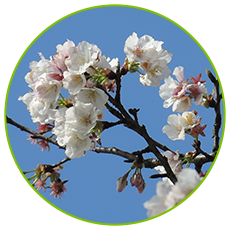Sep . 12, 2024 05:31 Back to list
Famous Pear Pollen Collection Base - Discover Premium Pear Pollen Products
The Importance of Pear Pollen Collection in Agriculture
In recent years, the significance of pear pollen collection has gained recognition within the realm of agriculture, particularly in enhancing fruit production and ensuring biodiversity. Pears, belonging to the genus Pyrus, are a popular fruit worldwide, valued not only for their sweet taste but also for their nutritional benefits. However, to ensure a good harvest, efficient pollination is crucial, and this is where the collection of pear pollen comes into play.
The Importance of Pear Pollen Collection in Agriculture
The process of pollen collection involves carefully selecting healthy flowers from various pear varieties during their bloom periods. The pollen is then extracted and stored in refrigerated conditions to maintain its viability. This meticulous process ensures that the pollen collected retains its fertilizing capabilities when used during the pollination season. Additionally, advancements in technology have improved the methods of pollen collection and storage, allowing for better preservation and more effective use in orchards.
famous pear pollen collection base

The use of collected pear pollen not only boosts the yield of fruits but also promotes genetic diversity. Cross-pollination using diverse pollen sources can lead to stronger, more resilient plants. This genetic variation is essential for adapting to changing climates and pest challenges, making pear orchards more sustainable in the long run.
Moreover, the ecological implications of pollen collection are profound. By ensuring that pollination strategies are effective, we can mitigate issues related to pollinator decline. Many pollinators, such as bees, face threats from habitat loss and pesticides, and having a reliable source of pear pollen can support their populations by providing them with food sources during critical periods.
In addition to agricultural benefits, the collection of pear pollen can also pave the way for scientific research. Understanding the genetic makeup and pollen characteristics of various pear species enhances breeding efforts and can lead to the development of new, more productive varieties. Researchers can study pollen viability, germination rates, and compatibility between different pear species, contributing to the body of knowledge that drives horticultural innovation.
In conclusion, the establishment of a famous pear pollen collection base is vital for improving agricultural practices and ensuring sustainable fruit production. By enhancing pollination efficiency and promoting genetic diversity, such initiatives can lead to healthier orchards and better fruit yields, ultimately benefiting both farmers and consumers alike. As agriculture continues to adapt to modern challenges, the importance of strategic pollen collection and utilization will only continue to grow.
-
High-Quality Oak Pollen for Allergy Research & Testing – Reliable Oak Tree & Live Oak Pollen Supplier
NewsJul.08,2025
-
Premium Pear Pollen for Pollination in Orchards in Taiwan – Reliable Factories, Manufacturers & Suppliers
NewsJul.08,2025
-
Premium Pollen Producer & Apricot Pollen Suppliers High-Quality Apricot Pollen Factories
NewsJul.07,2025
-
Premium Juniper Tree Pollen for Fruit Tree Varieties – Quality Assured by Leading Plum Pollen Manufacturers
NewsJul.07,2025
-
High Quality Elm Pollen Supplier - Fresh Elm Tree & Apricot Flower Pollen for Sale
NewsJul.07,2025
-
Premium Cherry Pollen for Sale – Fresh Cherry & Avocado Tree Pollen Supplier
NewsJul.06,2025